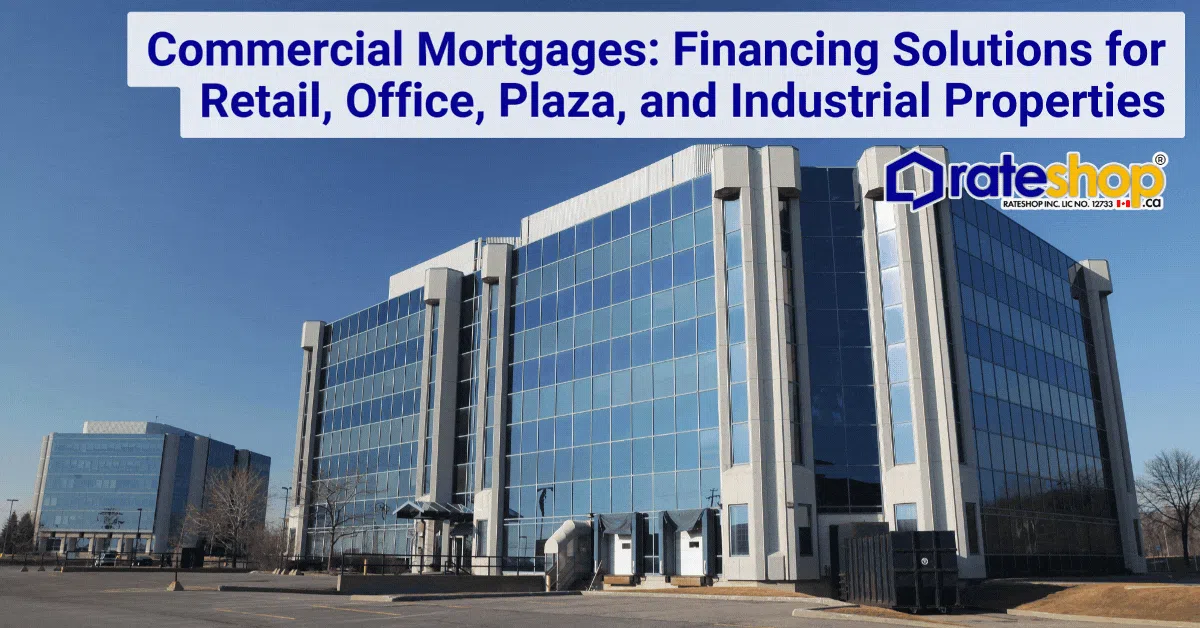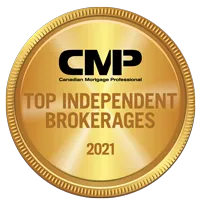Commercial Mortgages for Land, Retail, Office & Development
Flexible Terms: Financing options tailored to your business needs, from office spaces to retail outlets.
Access More Lenders: Private, Institutional & Syndicated Mortgage Lenders.
Minimize Costs: Flexible terms to suit your Project and help you save on fees
Expert Advice: 30+ Years in commercial lending from $5M to $200M closings.

Discover the best mortgage rates and lowest mortgage rates in Canada at RateShop. Compare Canada mortgage lending rates from top lenders to secure your ideal home loan deal today.

Commercial Mortgages in Canada: Your Guide to Financing Retail, Office, and Industrial Properties
Everything Business Owners and Investors Need to Know About Commercial Real Estate Financing
What Are Commercial Mortgages? A Complete Overview
Commercial mortgages are loans specifically designed for purchasing, refinancing, or renovating retail, office, and industrial properties. Unlike residential mortgages, they cater to businesses and investors, offering higher loan amounts and tailored terms to meet commercial needs.
Types of Commercial Properties: Retail, Office, and Industrial
Retail Properties
: Includes storefronts, malls, and shopping centers.
Office Buildings
: Ranges from small professional suites to large corporate towers.
Industrial Properties
: Warehouses, factories, and distribution centers.
Each property type has unique financing requirements and impacts loan terms.
Benefits of Commercial Mortgages for Business Owners
Build Equity
: Own your business property instead of renting.
Tax Advantages
: Deduct mortgage interest and depreciation.
Stable Costs
: Fixed payments provide financial predictability.
Income Potential
: Generate rental income from unused space.
How to Qualify for a Commercial Mortgage
To qualify, you’ll typically need:
A strong credit score (680+).
Proof of business income and profitability.
A down payment of 20-30% of the property value.
A solid business plan and property appraisal.
5 Year - Fixed Term from
3.89%
Apply for your Best Rate in minutes.
Everyone's rate is unique.What's yours?
It is our job to get your lowest possible rate. Your rate qualification depends on certain factors, such as credit score and home equity as per regulations.

Commercial Mortgage Rates and Terms: What to Expect
Interest Rates: Typically higher than residential rates, ranging from 3% to 6%.
Loan Terms: 5-20 years, with amortization periods of 25-30 years.
Repayment: Monthly payments based on the loan amount and term.
Commercial Mortgages vs. Leasing: Which is Right for You?
Feature Commercial Mortgage Leasing
Ownership Build equity in the property No equity buildup
Costs Higher upfront costs Lower upfront costs
Flexibility Long-term investment Short-term flexibility
Tax Benefits Interest and Limited tax benefits depreciation deductions
How to Apply for a Commercial Mortgage: A Step-by-Step Guide
Find a Lender
: Work with a mortgage broker or lender specializing in commercial properties.
Prepare Documents
: Gather business financials, tax returns, and property details.
Get an Appraisal
: Ensure the property meets lender requirements.
Submit Your Application
: Provide all required documents and wait for approval.
Risks and Challenges of Commercial Mortgages
Higher Costs
: Larger down payments and higher interest rates.
Market Risks
: Property values can fluctuate with market conditions.
Liquidity Issues
: Commercial properties can be harder to sell quickly.
Economic Downturns
: Vacancy rates may rise during recessions.
FAQs About Commercial Mortgages
What’s the minimum down payment for a commercial mortgage?
Typically 20-30%, depending on the property type and lender.
Can I use a commercial mortgage for mixed-use properties?
Yes, but lenders may have specific requirements for mixed-use spaces.
How long does it take to get approved for a commercial mortgage?
Approval can take 30-90 days, depending on the complexity of the application.
As Seen And heard on





Quick Links
Contact Information
6 Indell Lane, Brampton ON L6T 3Y3, Canada
Local: 416-827-2626
Toll: 800-725-9946
RateShop Inc. is a Mortgage Brokerage offering lowest mortgage rates to Canadians. We are provincially licensed in the following provinces: Mortgage Brokerage Ontario FSRA #12733, British Columbia BCFSA #MB600776, Alberta RECA #00523056P, Saskatchewan FCAA #00511126, PEI #160622, New Brunswick FCNB #88426, Newfoundland/Labrador.
Copyright 2026. RateShop Canada. All Rights Reserved.

